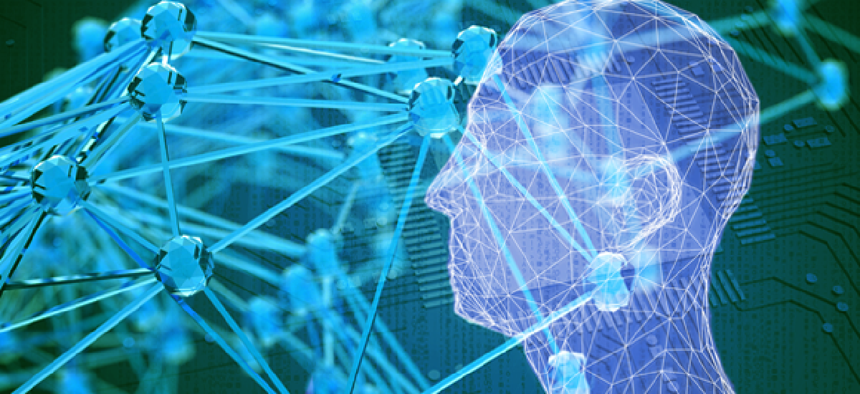GSA opens platform for blockchain, AI info sharing

GSA’s Emerging Citizen Technology program has launched an online atlas to serve as a one-stop resource for its blockchain and artificial intelligence projects.
As the pace of government innovation rapidly accelerates, the General Services Administration’s Emerging Citizen Technology program is bringing together agencies and industry stakeholders to share use cases, pilots and resources for blockchain and artificial intelligence projects. Justin Herman, who leads the GSA program, announced that the U.S. Emerging Citizen Technology Atlas is now open for contributions.
"Things are happening so quickly and it is hard to get a quick snapshot,” Herman said the Oct. 10 Blockchain @ State Forum. With the atlas, “we are open sourcing the use cases, programs and resources that agencies have come to the table with.”
Herman told GCN about plans for the atlas in July and his efforts to build a network of government and industry representatives to share what they have learned about blockchain and AI. Some of the initial work on the potential use cases comes from a Sept. 8 GSA workshop to integrate ideas from interested stakeholders into the fourth National Action Plan for Open Government, which will be released later this month.
Work related to programs in action will be added over the coming months, along with information on initiatives, pilots, events and requests for information. While the atlas is currently limited to blockchain and AI efforts, information on the Emerging Citizen Technology program’s work with virtual and augmented reality and social technologies will be added in the second phase of development.
Interested stakeholders are encouraged to contribute their ideas on GSA’s GitHub page for the atlas.
The State Department is particularly interested in learning more about how blockchain can have “direct applications” to its redesign plans.
“Protecting our cyber infrastructure and providing resilient and relevant technology to the men and women in the State Department and [the U.S. Agency for International Development] is crucial to helping them do their jobs efficiently all around the world, 24 hours a day,” Deputy Secretary of State John Sullivan said as he opened the discussion at the blockchain forum.
Blockchain can help to “maximize the impact and accountability” of foreign aid programs, Sullivan said, by providing safeguards against the “corruption, fraud or misappropriation of funds and inefficiencies within the aid delivery process itself.”
“Blockchain technology is not a panacea or answer to every problem," he said, "but we are hopeful that the State Department and federal government can leverage this technology to make us more efficient and serve the American people.”
NEXT STORY: Why innovation has never been easier





